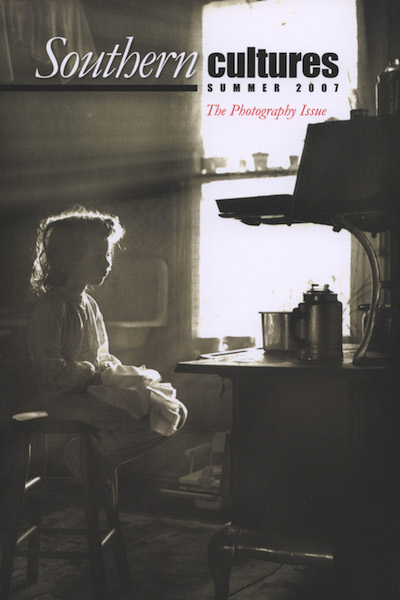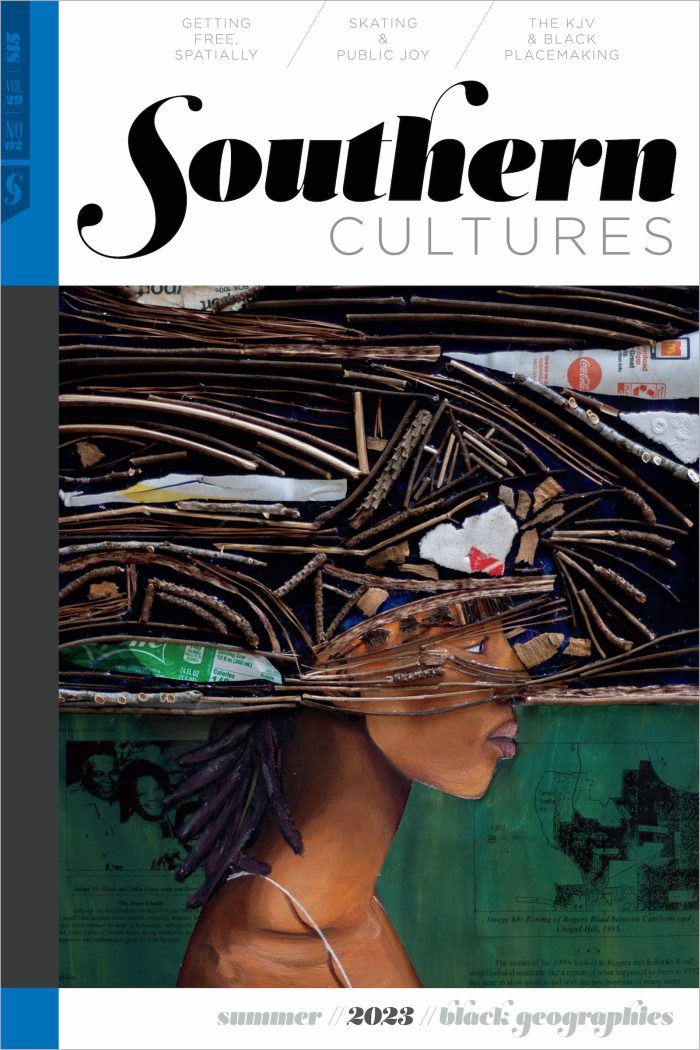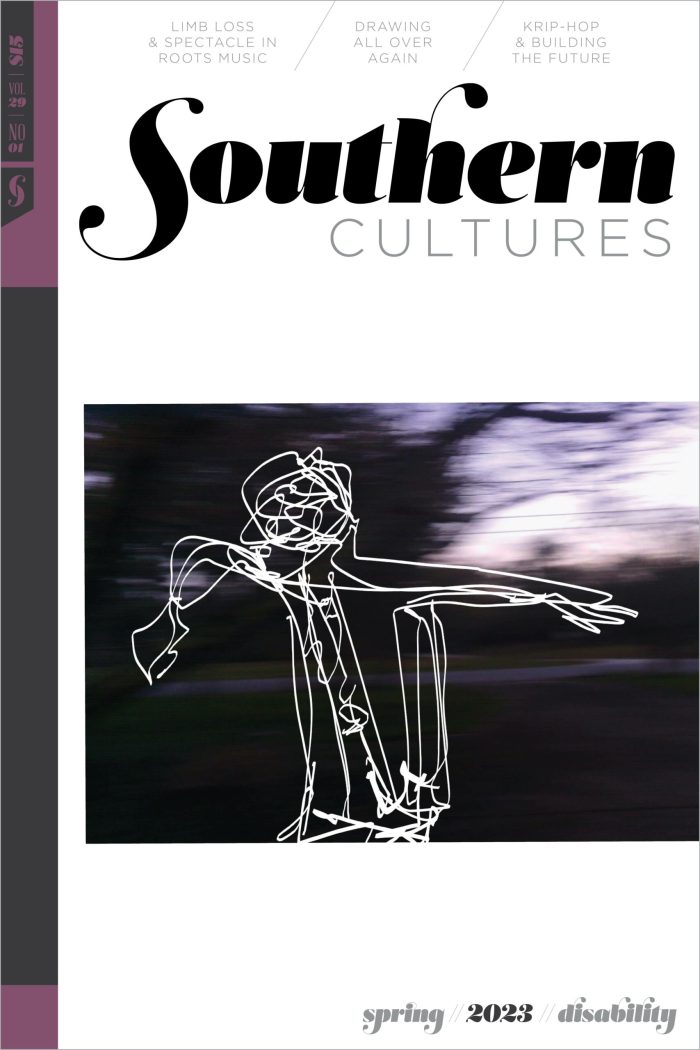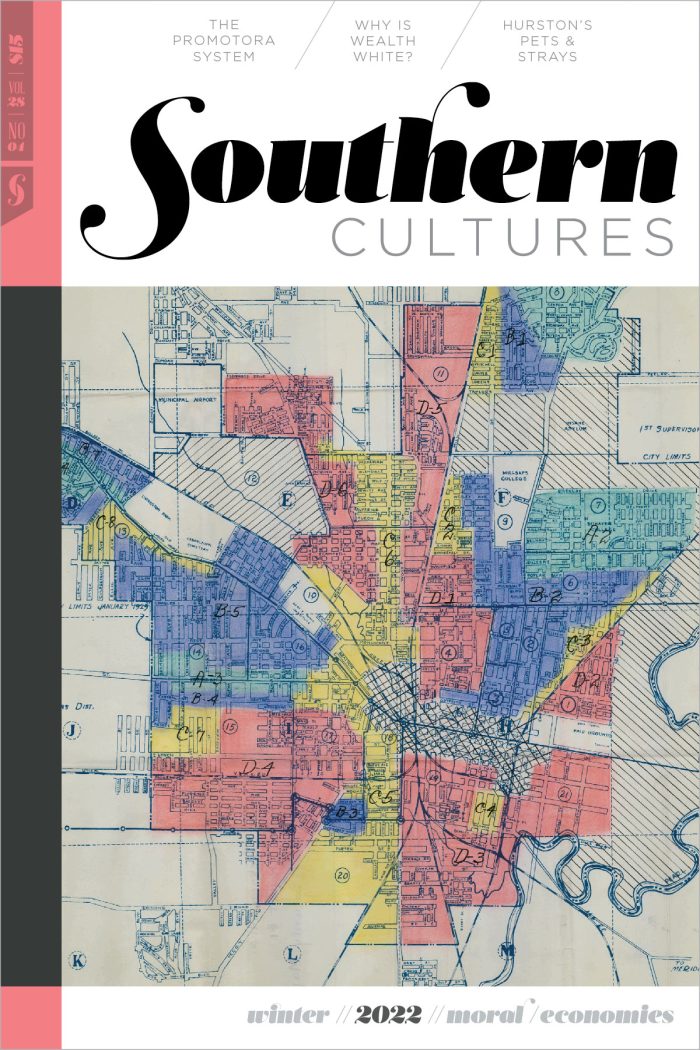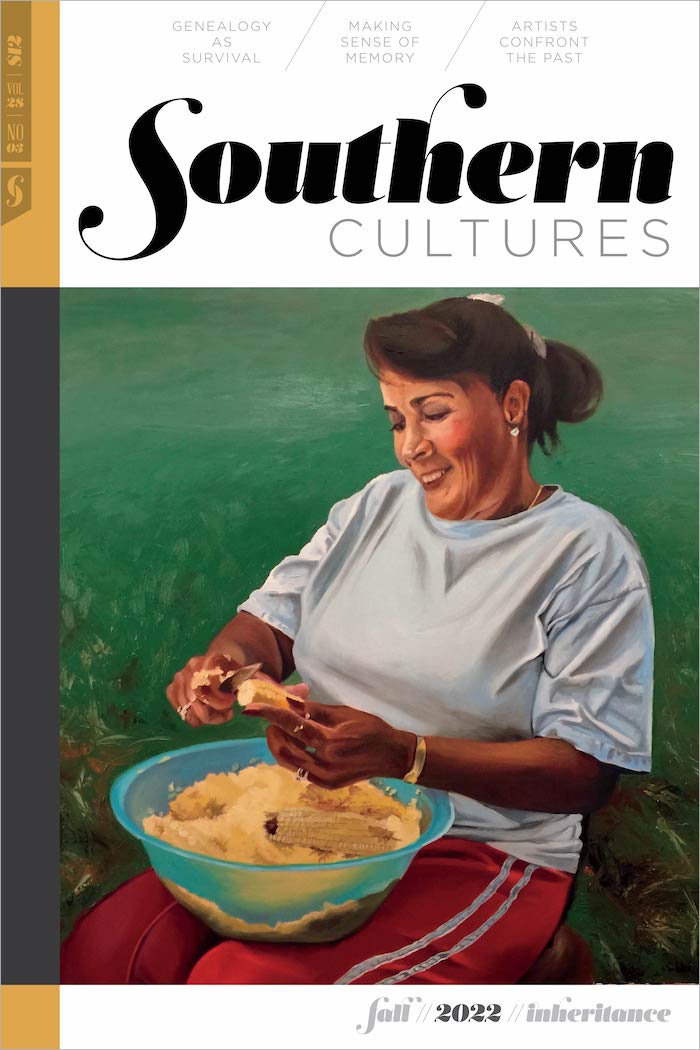BUY ACCESS
by Harry L. Watson
“The best photographs freeze time with more depth than the cheap pages of nostalgia, capturing the pain as well as the wonder that wells up in the tension between our ‘now’ and the picture’s ‘then.’ And the mixture of pain and wonder is a southern specialty.” Southerners are famous for their stories. We have sharp, »
BUY ACCESS
by Tom Rankin
“Photographs in the South have reflected the patterns and vicissitudes of the weather, both climatic and social-political, throughout our history. And no region’s photographic tradition has been more engaged in, maybe even obsessed with, exploring and reflecting the injuries and scars of time—brought on more specifically by war, bondage, discrimination, class conflicts, and the ravages »
BUY ACCESS
by William R. Ferris
“I approach these things as a moralist, really, because honesty and truth are moral values, but beauty is something else. And it’s a word that should be used damn carefully.” Few books have touched me so deeply as Let Us Now Praise Famous Men (1941). I first read it as an undergraduate student at Davidson »
Photo Essay
BUY ACCESS
by Berkley Hudson
“He documented tornadoes and floods of biblical proportions, a fire at a cotton mill and fires in the downtown business district, train wrecks and celebrities such as world heavyweight champion Jack Dempsey, Columbus native son playwright Tennessee Williams, and the parents of celebrated writer Truman Capote.” Sometime in the 1930s, jack-of-all-trades photographer O. N. Pruitt »
BUY ACCESS
by Rah Bickley
“He wasn’t a professional photographer, but he was Kernersville’s unofficial documentarian, and the hundreds of images he left behind portray a small Piedmont North Carolina community in the 1930s and 1940s.” I came upon the pictures about fifteen years ago. I was searching for something in my parents’ guest room in High Point, North Carolina, »
BUY ACCESS
by Moira Crone,
Thomas Neff
“You’d better turn on CNN; looks like your house is on fire.” Photographer Thomas Neff entered the city in the first days after Katrina as a volunteer first responder. He soon began taking large-format black and white photographs and writing down the stories of natives he found marooned there, when the city was eighty percent »
BUY ACCESS
by Bruce Jackson
“I was living in Boston and Buffalo in those years, and no prison director in either of those states ever let me beyond the sally port without a guard watching me every moment and listening to every word I said or that anyone said to me. Neither of those states let me bring a camera »
BUY ACCESS
by David Huddle
“. . . someone picks up a snapshot and says, just before tossing it to oblivion, ‘My god, who are these quaint people?'” Stiffly posed before the forsythia bush, they wearcoats, ties, and bemused faces, as if their mother’sjust called them from the porch, “You boyshold your shoulders back and stand up straight.”
BUY ACCESS
by John Shelton Reed
Pineapple Press, Inc., 2005 There aren’t all that many books I wish I’d written, but this is one of them. Wilber “Pete” Caldwell, who lives in Gilmer County, Georgia, and has written on subjects as diverse as public architecture and cynicism, turns his attention here to barbecue, and he obviously had a really good time »
BUY ACCESS
by John Shelton Reed
“Our publication is better for her suggestions, and it would be better still if we had been up to the job of taking more of them.” Among Elizabeth Fox-Genovese’s many accomplishments was her record as a scholar of the antebellum South, one whose books should be know to most readers of this quarterly. Fruits of »
